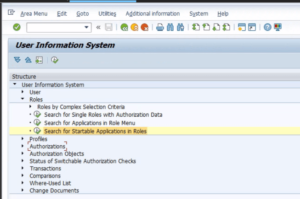Defnition
GDPR (General Data Protection Regulation) is a comprehensive data protection and privacy regulation that was implemented by the European Union (EU) in 2018. Its primary purpose is to provide individuals with greater control over their personal data and to standardize data protection laws across EU member states.
Here’s why GDPR is significant and why we should care:
1. Enhanced Data Protection for Individuals
- Explanation: GDPR gives individuals more control over their personal data. They have the right to know what data is being collected, for what purpose, and to whom it is disclosed.
- Why We Should Care: This empowers individuals and ensures that their personal information is handled with transparency and respect for their privacy.
2. Stricter Regulations for Organizations
- Explanation: Organizations that handle personal data are held to higher standards for data protection. They must implement robust policies and procedures to ensure compliance.
- Why We Should Care: This creates a more responsible and accountable environment for organizations that process personal data, reducing the likelihood of data breaches or misuse.
3. Data Breach Notification Requirements
- Explanation: GDPR mandates that organizations report data breaches to the relevant authorities within 72 hours of becoming aware of the breach.
- Why We Should Care: This ensures that breaches are dealt with promptly, limiting potential harm to individuals.
4. Increased Fines for Non-Compliance
- Explanation: GDPR introduces substantial fines for non-compliance, with penalties of up to €20 million or 4% of a company’s global annual revenue, whichever is higher.
- Why We Should Care: This provides a strong financial incentive for organizations to take data protection seriously.
5. Global Impact
- Explanation: While GDPR is an EU regulation, it applies not only to organizations within the EU but also to any organization outside the EU that processes the data of EU citizens.
- Why We Should Care: This means that businesses worldwide are affected by GDPR, making it a global standard for data protection.
6. Improved Trust and Reputation
- Explanation: Demonstrating compliance with GDPR builds trust with customers, partners, and stakeholders. It shows that an organization takes data protection and privacy seriously.
- Why We Should Care: Trust is a valuable asset for any organization. GDPR compliance can enhance an organization’s reputation and relationships.
7. Adaptation to Evolving Data Landscape
- Explanation: With rapid advancements in technology and the increasing importance of data in business operations, GDPR provides a framework for adapting to these changes.
- Why We Should Care: It ensures that our approach to data protection remains relevant and effective in the face of technological advancements.
In summary, GDPR is a crucial regulation that fundamentally changes how personal data is handled and protected. It sets higher standards for data protection, increases accountability, and empowers individuals with greater control over their own information. Complying with GDPR is not just a legal requirement, but also a step towards building trust, maintaining reputation, and adapting to a rapidly evolving data landscape. It is a responsibility that organizations and individuals alike should take seriously.




